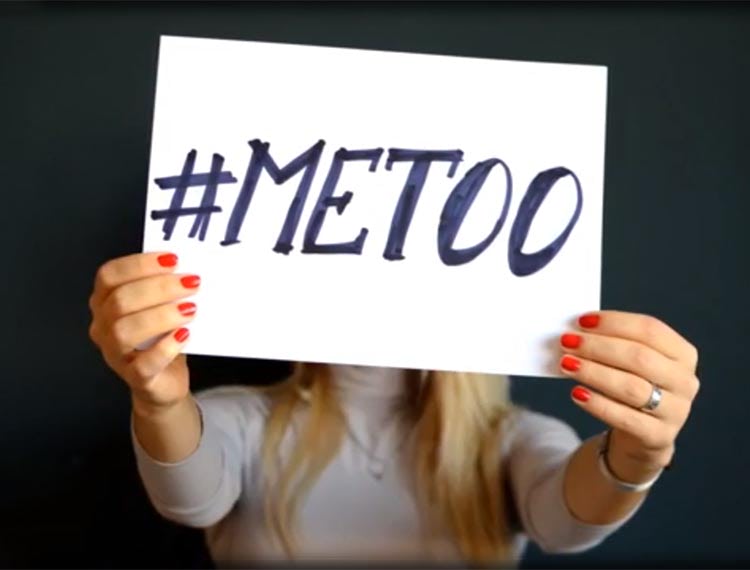Government must act to tackle #SexualHarassment of women and girls: New report by Women and Equalities Committee

The Government has a strong reputation for taking seriously the prevention of sexual abuse and violence overseas, but is failing to address the problem at home, says the Women and Equalities Committee in a new report published today (23 Oct).
The report calls on the Government to tackle public sexual harassment of women and girls urgently, and makes seven key recommendations for action.
The Committee’s nine-month inquiry into sexual harassment of women and girls in public places follows its earlier reports on sexual harassment in schools and workplaces.
The inquiry heard evidence of widespread problems of men and boys sexually harassing women and even girls on buses and trains, in bars and clubs, in online spaces and at university, in parks and on the street.
The report finds that harassment in these places is relentless and becomes ‘normalised’ as girls grow up, contributing to a wider negative cultural effect on society.
The report says that social attitudes, including disrespect of women and an assumption by some men that they can behave in this way, underpin sexual harassment.
MPs conclude that while the Government has pledged to eliminate sexual harassment of women and girls by 2030 under its international obligations, there is no evidence of any programme to achieve this.
Sexual harassment is almost entirely absent in the current cross-departmental strategy for tackling Violence Against Women and Girls.
To tackle sexual harassment in public places, the Committee recommends:
- The refreshed Violence Against Women and Girls Strategy, due later this year, sets out a plan of action, informed by central data collection, to make all public places safe for all women and girls.
- The Government must use the available research evidence, and commission further research, to inform its work on the causes of sexual harassment and how to prevent it. This work should include a long-term, evaluated programme of public campaigns to tackle the attitudes that underpin sexual harassment.
- A new law should be brought forward on image-based sexual abuse to criminalise all non-consensual creation and distribution of intimate sexual images, on the basis of the victim’s lack of consent rather than perpetrator motivation.
- The Government should take an evidence-based approach to addressing the harms of pornography, similar to the huge investment there has been over many years in tackling road safety or preventing public health problems caused by activities such as smoking.
- Train operators should be required through Franchise Agreements to have a robust policy on preventing and tackling sexual harassment and to block access to pornography. Bus regulations should be amended to prohibit sexual harassment and viewing pornography on buses.
- The Licensing Act 2003 guidance should be amended to ensure that licensees take action on sexual harassment. Local authorities must consult local women’s groups and sexual violence specialists when deciding their policies on licensing strip clubs and lap-dancing clubs.
- Universities should have a legal obligation to have policies outlawing sexual harassment, including collecting and publishing data on the effectiveness of those policies.
Chair of the Women and Equalities Committee, Maria Miller MP, said:
“Sexual harassment in public places is a regular experience for many women and girls in the street, in bars and clubs, on buses and trains, at university and online. It is the most common form of violence against women and girls and the damage is far-reaching. And yet most of it goes unreported.
“It can make women and girls scared and stressed, avoid certain routes home at night or certain train carriages, wear headphones while out running; women feel the onus is put on them to avoid ‘risky’ situations. It is not acceptable that women have to change their behaviour to avoid sexual harassment. It has a wider effect on society, contributing to a culture in which sexual violence can be normalised or excused. All of this keeps women and girls unequal.
“The #MeToo movement shows that we must confront some deeply uncomfortable truths about our society and the attitudes some men hold. Laws alone cannot solve the cultural acceptability of sexual harassment. That is why we have set out a series of practical measures that Government, public transport operators, local authorities and universities should implement immediately. Public places must be made safe for all women and girls.”
In the last five years, there has been a growing public debate about sexual harassment and sexual violence of women and girls in the UK.
A global survey published by Ipsos Mori on International Women’s Day 2018 found that sexual harassment and sexualisation in the media are seen by women and men in Britain as the second and third (out of over 20 options) most important issues facing women and girls in Britain today.
The Committee launched its inquiry into sexual harassment of women and girls in public places on 15th January 2018. Terms of reference here. Written submissions received as part of this inquiry can be viewed here. This inquiry sits alongside the Committee’s related report into sexual harassment in the workplace, published on 25th July 2018.
In 2016, the Committee held an inquiry into sexual harassment and sexual violence in schools.











Responses